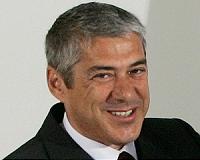| . |  |
. |
Brussels (UPI) Mar 25, 2011 EU leaders at a two-day summit in Brussels agreed to the most extensive overhaul of the bloc's finance architecture since the launch of the eurozone amid concerns that Portugal needs to be bailed out soon. The three-tier reform includes a permanent crisis fund to save financially troubled member states, tighter rules and sanctions for members that accumulate too much debt and the first tacit steps toward a joint economic policy. "This is a comprehensive package which is a big step forward," Chancellor Angela Merkel of Germany, Europe's largest economy, said Friday at the second and final day of the summit. It came amid a European-backed military campaign in Libya and fresh political instability in fiscally troubled Portugal, where Prime Minister Jose Socrates had resigned Wednesday. Portugal faces a sustained period of political instability and early elections and could become the third eurozone member to require a bailout after Greece and Ireland. Some analysts warned that Spain, which has suffered a housing market crash and high unemployment, also may need outside help and the fiscal reform is also intended to calm nervous markets. As so often happens in EU politics, the summit fell short of reaching the most optimistic targets. Yet even after the traditional wrangling for a compromise, the changes are far-reaching. The permanent crisis fund, to be in place by mid-2013, would have an effective lending capacity of $705 billion, with $113 billion of that provided by member states in cash. As the bloc's largest contributor, Merkel had pushed through her demand that cash be paid starting in 2013 in five equal yearly installments, instead of having to come up with around $57 billion by 2013. This hands Merkel more leeway for tax reductions in Germany, where her conservatives are facing an uphill battle to cling to power in several regional elections. To increase chances that countries won't need to tap the emergency fund, leaders agreed to make it easier to fine countries for spending too much and force them to adopt austerity measures. EU leaders also signed off on the Euro Plus Pact, aimed at harmonizing economic policy across the 17-member eurozone to make it more competitive. Six member states that don't use the euro -- Bulgaria, Denmark, Latvia, Lithuania, Poland and Romania -- also backed the deal. "I think we can say that the economic and monetary union will finally stand on both legs," European Commission President Jose Manuel Barroso said Friday.
Share This Article With Planet Earth
Related Links The Economy
 Portuguese crisis plagues key EU summit
Portuguese crisis plagues key EU summitBrussels (UPI) Mar 24, 2011 EU leaders met for a crucial summit in Brussels Thursday, as tensions over Libya were overshadowed by a political crisis in Portugal that could mean fresh trouble for the euro. Originally meant to end the bloc's debt crisis by turning a temporary stability fund into a permanent mechanism, the summit was expected to discuss the military campaign in Libya but now has to deal with the inst ... read more |
|
| The content herein, unless otherwise known to be public domain, are Copyright 1995-2010 - SpaceDaily. AFP and UPI Wire Stories are copyright Agence France-Presse and United Press International. ESA Portal Reports are copyright European Space Agency. All NASA sourced material is public domain. Additional copyrights may apply in whole or part to other bona fide parties. Advertising does not imply endorsement,agreement or approval of any opinions, statements or information provided by SpaceDaily on any Web page published or hosted by SpaceDaily. Privacy Statement |